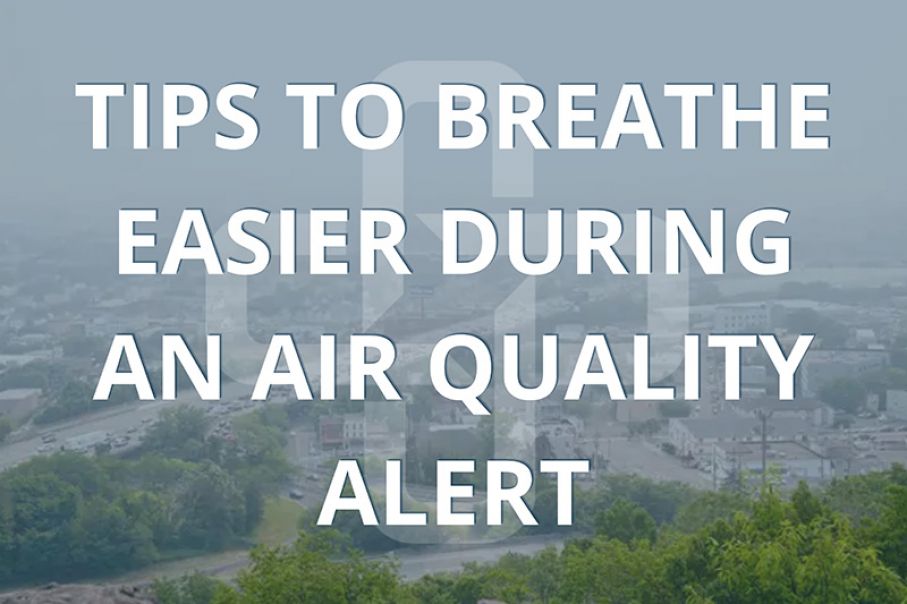JUNE 8, 2023: Dr. Solis suggests that all individuals, even those without a preexisting condition such as asthma or cardiopulmonary disease, take the following precautions anytime an air quality alert is issued:
- Limit time outdoors
- Use an air purifier or HEPA filter
- Use a mask if you are outdoors, preferably an N95 mask
- Make sure all doors and windows are closed and make sure your air conditioner filter has been recently changed or cleaned whether it is a wall unit or central air
- Anyone with asthma should carry their inhaler and use a face mask if they need to go outdoors
“Poor air quality can affect even healthy individuals, but those who suffer from heart or lung disease, such as Asthma or COPD, and those over the age of 65, are more likely to experience shortness of breath and fatigue,” says Dr. Solis, Chief of Pulmonology. “Fine particles in the air, whether from pollution or a forest fire, can cause bronchial spasms, and tight airways, making it difficult to breathe when outdoors.”
Dr. Solis also encourages anyone to reach out to their healthcare provider if they are concerned about their breathing. For those who have been prescribed an inhaler, do not be afraid to use it when needed. However, if breathing does not improve, seek medical attention.
To find a primary care doctor, click here.



